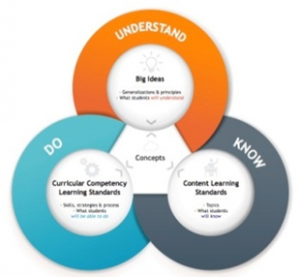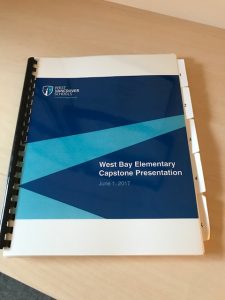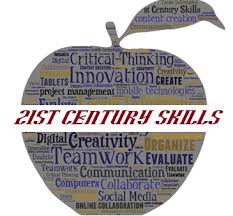Educational Transformations
June 8, 2017 - 8 minutes readOver the last several years, there have been significant changes to both the BC Curriculum and the BC Ministry’s requirements for how schools and districts report student achievement. Keeping the end in mind, these changes were in response to how the world is changing and the urgency for our education system to prepare students to be educated, productive citizens. How have these changes impacted West Bay?
BC Curriculum
In November, 2013 I attended the BCSSA (BC School Superintendents’ Association) Conference where Maureen Dockendorf, BC Superintendent of Early Years, shared her insights on educational transformation. Her enthusiasm was contagious, her message was clear. “We are no longer covering the curriculum; we are uncovering the curriculum.” Even though the BC Curriculum was still in Draft form, a framework was in place for schools to dabble and explore and Dockendorf urged educators to jump in. She reiterated and encouraged us to, “be the best we can be for kids when we don’t know the future”.
Rather than wait for the curriculum to be mandated, our West Bay team followed Dockendorf’s advice and delved into the new curriculum in order to be the best for the sake of our students. We collaborated, planned and implemented the Draft Curriculum, making tweaks along the way as the Ministry responded to feedback from around the province. Our staff spent time examining the Core Competencies, discussing how each is vitally important in supporting the development of the educated citizen. We looked at how they are inter-related and ways to authentically embed them into the curricular competencies.
In the fall of 2014 our school goal focused on developing our students’ communication competency. Using the Spirals of Inquiry model required by our district, we developed inquiry questions based on improving student learning. We determined what new learning would be meaningful for our teachers, which strategies could be implemented to support growth in our learners, and what data should be collected in order to track and monitor our progress. At the end of that year staff and parents examined the evidence, reflected on our journey and determined next steps.
We continued to focus on the Communication Competency over the next two years. Each spring and fall we scanned our learners, shifting our focus between the four facets of the Communication Competency.
Framework for Enhancing Student Learning
The Ministry shifted its expectations in 2015 on how schools and districts would be accountable for student achievement in order to align with other educational transformation initiatives. A Framework for Enhancing Student Learning was an opportunity for schools to work within a sustainable, evidence-based framework that would ensure all students achieve their full potential.
Input from a variety of stakeholders within our school district guided the development of a school planning process for West Vancouver Schools. A three-year cycle for school plans was decided upon, culminating in a Capstone presentation to staff from other schools and members of our District Leadership Team. At the end of the 2015/16 school year, Director of Instruction Lynne Tomlinson asked schools to decide where they would be in the three-year cycle.
Given West Bay had been focusing on developing students’ communication competency since 2014, we chose to enter the process at Year Three in the cycle. We continued to review feedback and evidence for formative improvement throughout the current school year in preparation of our Capstone presentation. On June 1st members of our District Leadership Team, a high school Principal, former and current PAC (Parent Advisory Council) Executive members as well as a former SPC (School Planning Council) member, gathered together for West Bay’s presentation and to review our written report. Presentation can be accessed here: Capstone
When reflecting on our three-year journey, our team determined we had much to be proud about, much to celebrate, and areas requiring continued improvement. We highlighted our successes and shared our challenges. The evidence indicated our learners were confident, articulate presenters who could engage with others to deepen their understanding and develop their interpersonal skills. However, the evidence was also telling us that further work was warranted in developing our students’ ability to communicate in writing as well as their ability to reflect meaningful on their learning. The Capstone presentation afforded us the opportunity to tell our story and receive feedback.
Next Steps
We are shifting gears. After reviewing feedback, examining the data, and scanning our learners, we concluded that a focus on the Critical Thinking Competency is a logical extension of our work done over these last three years in the area of the Communication Competency. Students must communicate effectively in order to “engage in considerable, rigorous interaction with others in figuring out complexities related to the ideas of the topic…” (Assessing Critical Thinking, 2008 Galileo Educational Network).
Although the three facets of the Critical Thinking Competency are inter-related, our team decided to focus on two facets next year — to ‘Analyze and critique’ and ‘Develop and design’. Critical thinking tasks involve reflection; students will have a myriad of opportunities to practise and improve their reflection skills. The ‘Develop and design’ facet ties in well with the new ADST (Applied Design, Skills and Technologies) curriculum as students apply critical thinking when experimenting, evaluating design options, refining their plans and monitoring their progress.
By focusing on critical thinking skills over the next three years, we hope to prepare our students for the fast-changing realities of the modern world, one in which they will need skills that technology cannot replace.
Conclusion
I look forward to launching our new goal to develop students’ Critical Thinking Competency. Our school team will work together and connect with the larger community throughout the process. As per our district’s criteria outlined in our Framework for Enhancing Student Learning, a robust document is required, with clear guidelines articulated to improve the learning environment for all learners.
According to Will Richardson and Bruce Dixon in their white-paper, “10 Principles for Schools of Modern Learning” (2017), “…we need to focus our work on what is clearly the most important skill of all for this moment: developing kids who are deep, powerful, curious, agile learners first and foremost.” The Framework for Enhancing Student Learning and the new BC Curriculum are structures that allow schools to do just that.




Recent Comments